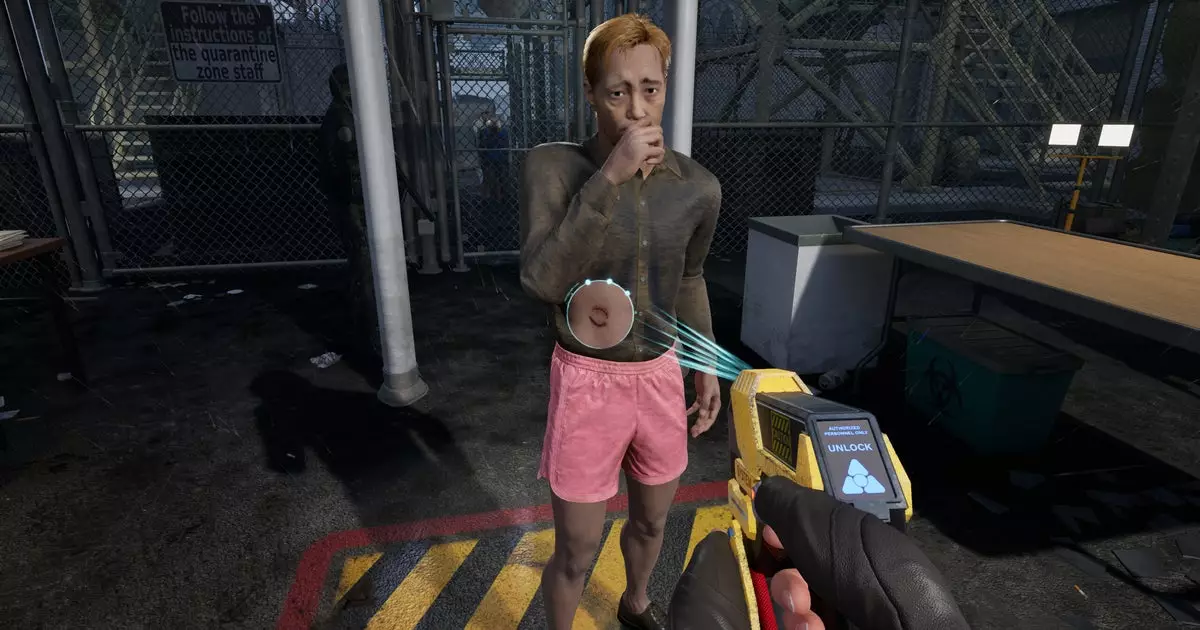At its core, immersive simulation games like *Quarantine Zone: The Last Check* elevate beyond mere entertainment to serve as reflective mirrors of complex human morality. The game’s premise—a grim checkpoint staffed by hazmat-clad guards screening refugees during a zombie outbreak—places players in a moral tightrope walk, forcing them to weigh life and death decisions under intense pressure. This setup raises profound questions about justice, compassion, and the human capacity for difficult choices, mirroring real-world dilemmas faced at borders, hospitals, and emergency zones. The game’s appeal lies not just in its mechanics but in its challenge to players’ moral compass, compelling introspection about how we define normalcy and threat.
Strategic Decision-Making as a Reflection of Humanity
In any crisis scenario, swift judgment becomes vital. *Quarantine Zone* exemplifies this through its intricate inspection process, where players use tools like UV lights and thermometers to detect signs of infection. Each individual’s fate hinges upon a series of rapid assessments: a groaning woman, a silent child, or a seemingly normal civilian. Here, the game doesn’t merely test reflexes—it probes decision-making under ambiguity. This dynamic underscores a key truth: in real emergencies, humans must often make gut-wrenching choices with incomplete information. The pressure to quarantine, admit, or euthanize invites players to consider just how much they’re willing to risk for the sake of safety or compassion, pushing us to confront our own biases and fears.
The Power of Resource Management and Its Broader Implications
Beyond moral judgment, *Quarantine Zone* challenges players to navigate limited supplies—test kits, weapons, and manpower—while ensuring that the checkpoint remains functional and secure. This balance highlights an essential aspect of leadership in crises: resource scarcity often forces uncomfortable prioritizations. Every decision to conserve supplies or to expend them can have ripple effects, influencing the safety of the entire community. On a symbolic level, this resource management aspect reflects the broader societal challenge of equitable distribution—how societies decide who gets what during times of scarcity. It prompts an essential reflection: do we prioritize the many, the few, or the most vulnerable? The game subtly encourages players to consider the consequences of their choices beyond the immediate chaos.
The Hidden Subtext: Warping Reality or Exposing Truths?
While *Quarantine Zone* employs familiar dystopian tropes—zombies, barricades, quarantine zones—it subtly critiques the nature of authority and societal control. Is this simulation an allegory for real border politics? Or is it simply a dramatization of science fiction cliches? Regardless, it opens a dialogue about the thin veneer separating compliance from rebellion, safety from tyranny. The game’s depiction of constant vigilance and suspicion resonates with real-world issues—immigration, fear of the other, and the perpetual struggle of security versus freedom. Such narratives, cloaked in horror and survival, foster critical reflection on how societies manage chaos and uphold justice during crises, whether biological or geopolitical.
The Humanity Inside the Machine
Interestingly, the game hints at a satirical twist—poking fun at the dehumanization inherent in such brutal decision-making. Imagine filtering every refugee through a humorous lens: is this person Buster Keaton dressed as a dinosaur, or just a regular civilian with a strange hat? Such absurdist scenarios serve as a reminder that beneath the protocols and tools, there are real people with hopes, fears, and quirks. The playful suggestion of distinguishing a silent Keaton from a giant Jurassic creature underscores the importance of human empathy and humor amid chaos. It emphasizes that, even in a world overrun by monsters and suspicion, preserving a sense of humanity remains vital. After all, laughter and compassion can be powerful antidotes to fear and paranoiac deportment.
—
This critique reveals that *Quarantine Zone* is much more than a zombie-themed game; it is a provocative exploration of human morality, societal structures, and the enduring resilience of empathy amid chaos. Its mechanics serve as metaphors for real-world struggles—decision-making under pressure, resource scarcity, and the challenge of maintaining humanity in dehumanizing circumstances. The game invites players not only to survive but to reflect on what it truly means to uphold integrity when the stakes are at their highest.


Leave a Reply